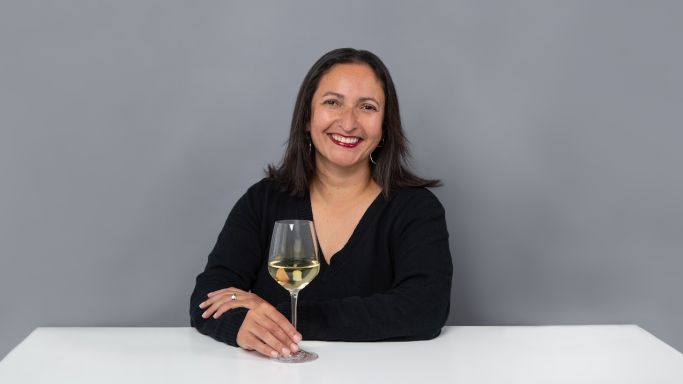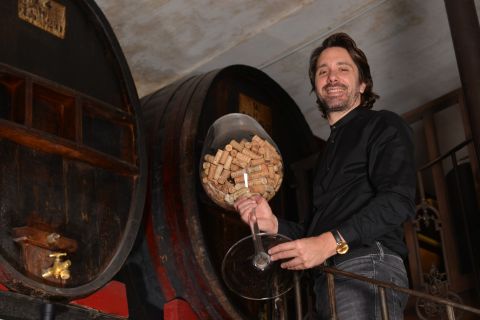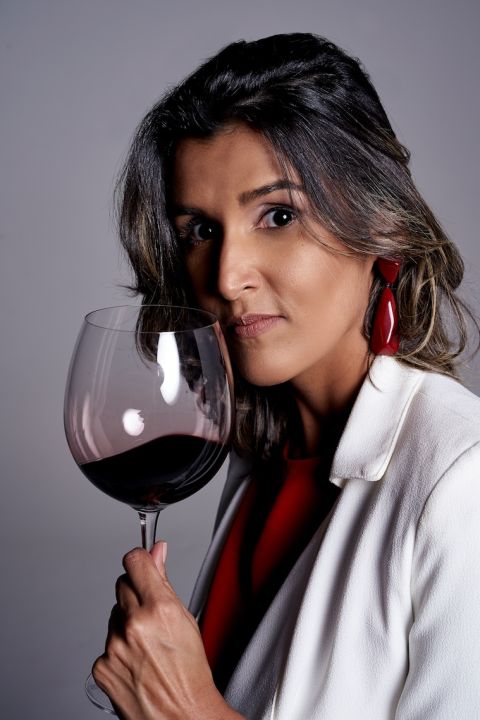Romané Basset of the Gérard Basset Foundation continues this series profiling some of the most impressive applicants for this year's Taylor's Port Golden Vines Awards, a mix of funds and internships for MW and MS candidates. Those who want to become Masters of Wine dominated this year. See part 1 and part 2.
Kanchan Schindlauer, USA
Schindlauer, pictured above, is a first-generation, Indian-born migrant to the USA, and says, ‘the importance of learning as a top priority was instilled early on’. Before her career in the wine industry (which began later than is usual), she worked in academic science, holding a PhD in physiology from the University of Michigan and serving for a decade as a research associate professor at the University of Washington.
In 2014, she decided to pivot from her highly successful scientific career (holding more than 20 awards and honours for her presentations of ideas and data) to a new path in the wine industry. She worked in diverse positions, beginning as a mere tasting-room employee and crush intern at WT Vintners in Washington State before becoming director of operations and customer lifecycle at Wine Folly.
In 2019, Schindlauer took the bold step of founding her own business, There’s a Wine for That, which specialises in ‘wine gifting for any life occasion’, and which she still runs. In 2023, she gained her DipWSET with Merit, and has wasted no time in joining the MW programme – currently at Stage 1. Before entering the sector, she ‘couldn’t conceive of a successful career in the wine industry’, in part due to ‘the lack of relatable, culturally diverse industry role models’. In pursuing her career and her MW, she is determined to play a part in changing that.
Emiliano Stratico, Argentina
Stratico studied foreign languages at high school, where he ‘delved into the worlds of English and French literature’, awakening a wanderlust within him. Since then, he has gone on to travel across the globe, visiting Thailand, Morocco, Mexico, Monaco and the UK, among many other countries. Exposure to such ‘diverse cultures, cuisines and languages’ nurtured what he calls ‘a profound interest in food and wine’. This led him in time to take the ‘pivotal decision’ to settle in Paris and immerse himself in the world of gastronomy. He took varied roles, from working in cafés to serving on night trains running to Italy.
A return to Argentina in a role tasked with bolstering the wine exports of his home country led Stratico to start organising events, workshops and tastings globally, in markets as varied as Vietnam, China and Nigeria. At the same time, he began pursuing wine education, progressing through the WSET and going on to gain his DipWSET. He now has his sights set firmly upon the MW and is currently a Stage 2 student. To accommodate his MW studies he has pivoted into the role of a freelance wine consultant, based in Buenos Aires but travelling globally to educate and mentor others, with the goal of ‘amplifying underrepresented voices and fostering a more inclusive global dialogue’ within the wine industry.
Karene Vilela, Brazil
Vilela’s passion for wine is reflected in the varied roles that she holds within the Brazilian wine sector. She is the CEO of Portus Cale, a family-owned wine importer and merchant, bringing ‘fine wines from around the globe’ into Brazil. She’s also a wine educator at The Wine School Brazil, an outlet for her to share her knowledge and enthusiasm for wine with the students that she mentors there. On top of these roles she is vice-president of the Portuguese Chamber of Commerce in São Paulo, through which she works to maintain and deepen cultural and business connections between Brazil and Portugal, and is a freelance writer for Única, an online wine-content hub and community.
As well as all this, Vilela is a Stage 1 MW student – indeed, she is the sole student from Brazil currently enrolled in the IMW programme – and this naturally presents her with even more challenges than most other students. Undeterred by this, she persists in her MW studies, which she hopes to use ‘to enlighten and include Brazilians in the international wine narrative, effectively democratising wine education and appreciation in a region traditionally underrepresented in this field’.


